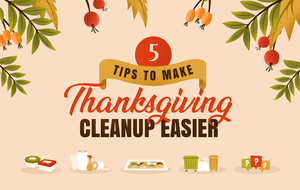Kevin: Hey guys, welcome back to another week we talk about all things real estate-related. Eric and Marc are here again from Ottawa Mortgage Shop. So today I figured a good question to answer would be, what is the difference between a mortgage broker versus getting a mortgage to the bank?
Eric: You know, I'll bring it back to our past experience for me, and Marc actually worked for a big bank for over 10 years. So you know, your question how to best answer that, I think we're, I've seen we've seen both sides of the equation for sure. Yeah. You know, as a broker, we work with big banks as well. So there's no if that's the decision the client wants to do because their bank or they want to continue banking with their bank, then, by all means, we can help them out with that. Typically, you know, the difference between a broker and a bank is we have a lot more options for our clients, we work with 40 Different lenders, major banks model lines, that we are able to find the best deal for your solution because everybody that comes into our office always has something different, it's always a different need different niches. So we're able to put them in the proper lender in order to go after that niche. Having 40 Different lenders, we do the shopping. So right now, especially, it's tough to get people on the line or banks on the line, we do the shopping for you. So we actually send the deal out to multiple lenders, and we make them fight for your mortgage. Making you get the best rate out there.
Kevin: For sure. No. And I even like to add, because I do have clients that come in, they want to work with a specific bank, and I always say, well, the broker works with them too. And they can shop the rate, if you want to work with that bank, you can but you get a better one, you know.
Marc: Exactly. And it's comfortable for some people, right. That's what they've known. That's what their parents did. That's what their grandparents did. So but you know, times have changed. And now you've got people that are there to help you not only with your you know, if that's what you want to do stay with your bank, but that's also more than okay. But we've also got this plethora of other options. So banks will have a very, you know, defined sandbox, or as we have 40 lenders, that all have a slightly different sandbox. So if your application doesn't fit in that sandbox, well, they might fit in this one, and they're still we're still talking good grapes.
Kevin: Never Sure. So I think a big question is, can a broker get a better rate than the bank?
Marc: Absolutely. So broker can get a better rate, there's no doubt about that. So we typically get our better rates through something that's called the motto line. So there are quite a few of those that we work with. But the rate is only one part of it, our rate will be better, the mortgage terms will be better, they're typically you're able to prepay on pretty much every one of our lenders 2020, which means you know, 20%, annually, increase your payments by 20%. So you can actually pay down the principal of your mortgage much quicker. Not every big bank uses that if I can use an example, the big bank we used to work with was only 10% is what you could do. The other thing is that the penalties to break the mortgage, if ever that needed to happen, which is called the IRD, is calculated in a much, much more favorable way, on these Monroe line type banks. So essentially, just to put that in layman's terms, is if ever you need to break your mortgage for any whatsoever reason, your penalty is gonna be a lot less with these model lines. And it will be with the big guys.
Eric: And you know, a big advantage is that these modelines don't have brick and mortar, right? They're based mainly online. So you know, they're they have apps, you can have a look at your account, you can and as you mentioned, you know, you can up your payments by 20%. And you can put a lump sum of 20% of readers well, so you can pay down a lot faster. So we have a bunch of those that we work with. And typically you're going to be saving about 20 basis points from a bank rate versus, you know, a broker rate. And when you're looking at the difference in rate and the savings that you're going to get, it's a big difference, especially now where, you know, uncertain times cash flow is maybe a little bit more, you know, tighter, you know that 20 basis points are huge. And it's always the water cooler talk. Right? So you know, when you get a house, the first question is what rate you get on your mortgage. Right. So, you know, being able to offer the best rates. I mean, it's good. And I think that was one of the main reasons why we sort of, you know, steered away from big banks, working for big banks, and we went on the broker side. Yeah, we were getting a little tired of getting the brokers stealing our business, your business.
Marc: So the thing with big banks is you're ultimately working for the bank, you're representing your client, but you're also really, in essence working for the bank. Whereas when you're a broker, you know, you're just clearly just working for the client. You got 40 banks to choose from to give them a rate, you know, fits the scenario, whatever for their mortgage. So you're more in tune with what the client needs, and you've got more options, whereas with the bank, I mean, you know, you're shopping within that bank.
Kevin: So you're not stuck to work with the one bank. But right, you guys do also work with others?
Marc: That's right. Yeah. And other things, like the big thing about brokers overbank, if we want to call it that is basically, we have different sandboxes. But and right now the world the way it is, and income being, you know, the way it is, and all those things, we have lenders that can accommodate pretty much anybody Bruce credit, bad credit, past bankruptcies, past consumer proposals, it could be just somebody who's self-employed, not declaring maybe the the the amount of money that they truly make, and we can represent that. So there's a whole bunch of lenders out there, and they're a lot cheaper than what people think, yes, it's going to be probably slightly higher than what you know, we would normally get before just a small bump, we can get pretty much everybody, pretty much everybody approved.
Kevin: Fisher, that's definitely big. So what does it cost to work with a broker? Is there any cost involved?
Marc: There's no cost involved? You know, we're there working for you. And our commission, our pay comes from the bank. So there's absolutely zero cost to the client.
Kevin: So you mentioned alternative lending, what exactly is that?
Eric: You know Mark touched a bit on it, it's people that have a hard time getting a mortgage with their regular banks. It could be because you're self-employed, and you don't declare enough income, it could be because you have bruised credit, it could be because, you know, you've got a lot of, you know, higher debts or higher debt ratio. We have lenders out there that could accommodate that. So we have, you know, we call the regular banks, the lending, and then alternative lending, we sort of call it B lending, but the rates are pretty aggressive when you look at it. So, you know, the rates right now you're looking at, you know, 2.69, on 20% More, and you can get a be lender for 2.79. Actually, even better, I got one for 250. Yeah, rates are comparable to what the lenders are offered. Yeah, sometimes it comes with a little fee on the sign the 1% fee that the lender will ask because they're going above and beyond, you know, the guidelines. But, you know, on a $4,000 or $400,000, mortgage, you know, it costs you four grand, so, you put that in the mortgage, and you're able to move forward. And a lot of you know, I think our main one is when you're self-employed, so a lot of people have this idea of okay, well, I need a two-year average, if I'm self-employed, so, you know, I'm going to plan ahead, so when I'm going to purchase something, the two years before I purchase something, you know, I'm going to declare a little bit more income in order to qualify for a mortgage, you're actually paying taxes on more income. So instead of doing that, keep your income as is go on the b side, pay pretty much the same rate with a small fee, and you're going to be paying less on interest than the taxes that you would pay if you put more income.
Kevin: I’ve never explained like that, I love it.
Eric: You know, what, we've got solutions, we and that's our B lender, and we can even go private lending as well, for a worst-case scenario. You know, private lending is very, very common among newcomers to Canada. So the programs that are out there for newcomers, if you're not working and you're and you're actively looking for a job, is you have to have 35% of the downpayment with the big banks. Not everybody that comes here has 35%, especially with the prices that are out there right now. So we have private lenders that will do 15% 20%. So, you know, yeah, it's gonna be a slightly higher interest rate. But you know, you're going into the market, you're, you're paying down a mortgage, you've got equity, homeownership, and then you start, your life in Canada
Marc: And that applies to non-residents as well. So even people that are not residents of Canada want to get into this market here because they might have a kid going to university and you know, at Ottawa, you were Carlton, or wherever, you know, they can purchase a home from them, even though they don't declare any income in Canada whatsoever.
Kevin: And it's really important for people to know
Eric: So instead of going to one place and trying to figure out you know, if you're a right fit, if you go to a broker, will get you the right fit, depending on your needs and your situation.






